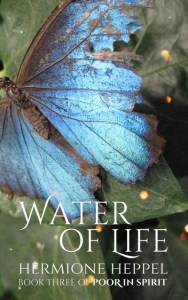I’ve been reading quite a bit about writing lately, while I wait for my Christmas present, which is time with a professional editor. When writers write about writing it can very easily get luvvy and incestuous and publishers and authors seem to appear disproportionately often in fiction, from Love Actually to Fifty Shades to Misery to Dragon Tattoo. And writers love ‘show don’t tell’. They will go into long, detailed descriptions and then in their seminars they will discuss the difficulty of balancing their ‘art’ with what they are trying to say.
I’m told that if I want to be a writer I have to read a lot, because that’s how I’m going to learn my craft. Thing is, I read slowly, and frankly there aren’t that many books I’ve encountered lately that really grab me. I’ll start one and get bored quite quickly, and the most frequent reason is the long, detailed descriptions, whether it’s of a scene, the intricacies of a piece of machinery, or the minutiae of a piece of action. It seems to me that if it takes a lot longer to read something than to imagine it happening in real time, then you are losing me. Milton lost me very quickly, as did Proust. Sorry, guys. And in Paradise Lost I really did want to know what happens next. Latest one is Banks’s Culture books, though I’m persisting with him for the moment.
As a reader, I don’t want to admire the brushstrokes; I want to follow what’s being communicated. I’m (speaking personally here) not desperately keen on thrillers with lots of jeopardy, and at the other end of the scale I can do without long descriptions of sexual encounters, which is fine if I can skip them without missing the next twist in the story. I’d much rather have a few clues (obviously there have to be enough of them to give the imagination something to chew on) and fill in the gaps myself, than to find myself waiting for the picture to unfold before I can ‘see’ it. That’s like buffering when you’re watching a video. Why aren’t we allowed to put in back story? Is it a fashion thing? If keeping your reader interested is to withhold information and just drop hints about what they need to know, then I’m not in your genre.
Just enough is enough.

 Self-publishing has been an ideal medium for me, and I’m impressed and astonished at Amazon and CreateSpace and how they’ve made it possible to publish work for Kindle and for print.
Self-publishing has been an ideal medium for me, and I’m impressed and astonished at Amazon and CreateSpace and how they’ve made it possible to publish work for Kindle and for print.
